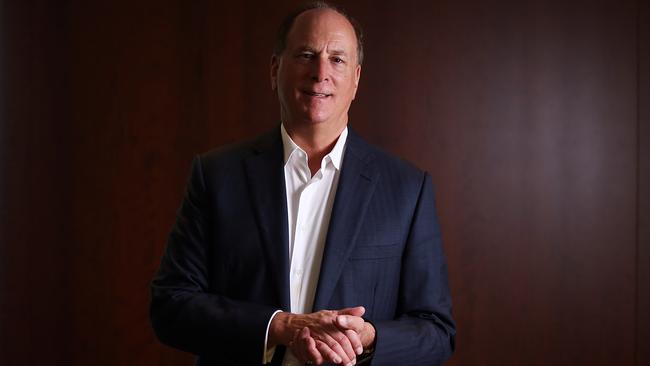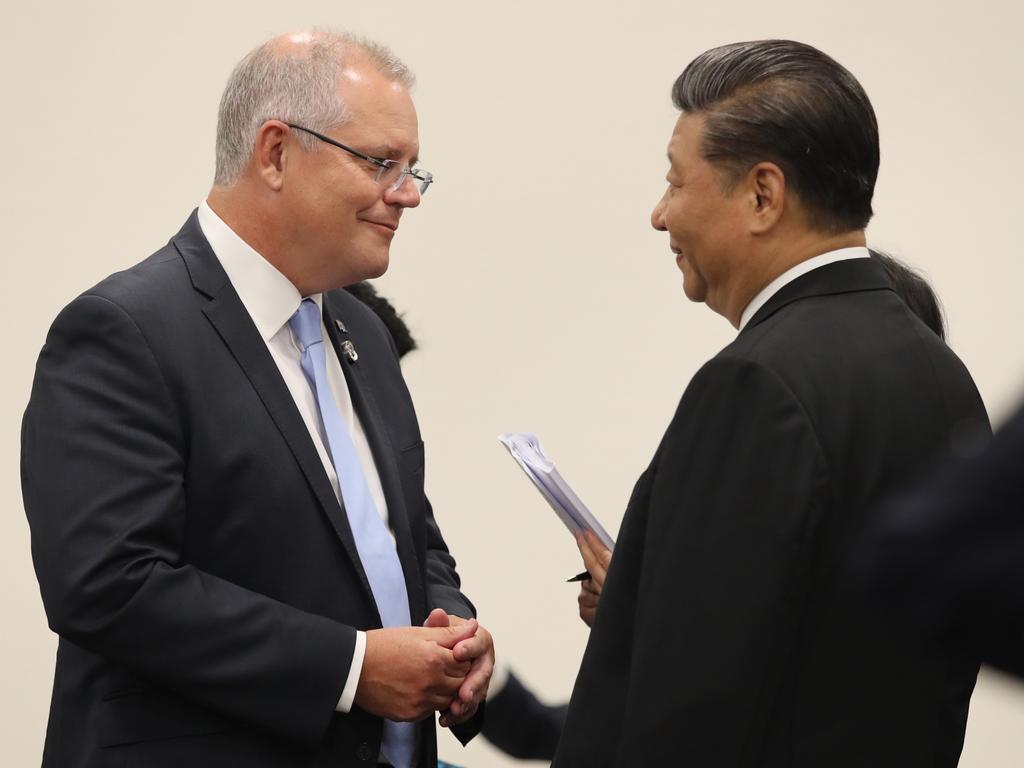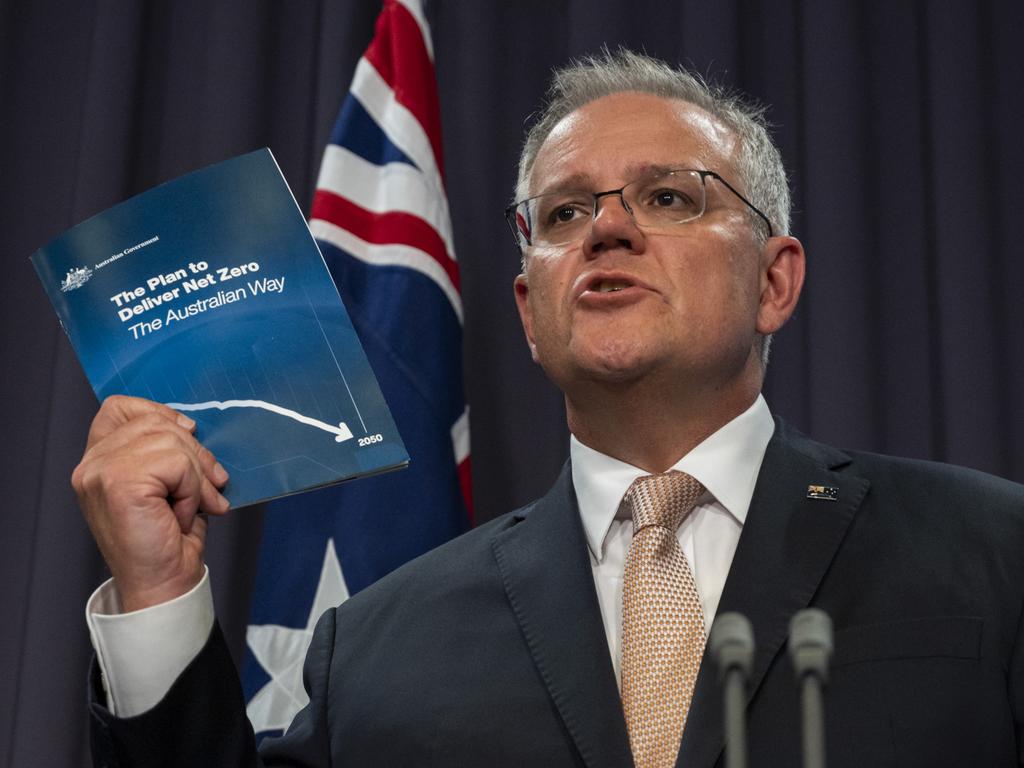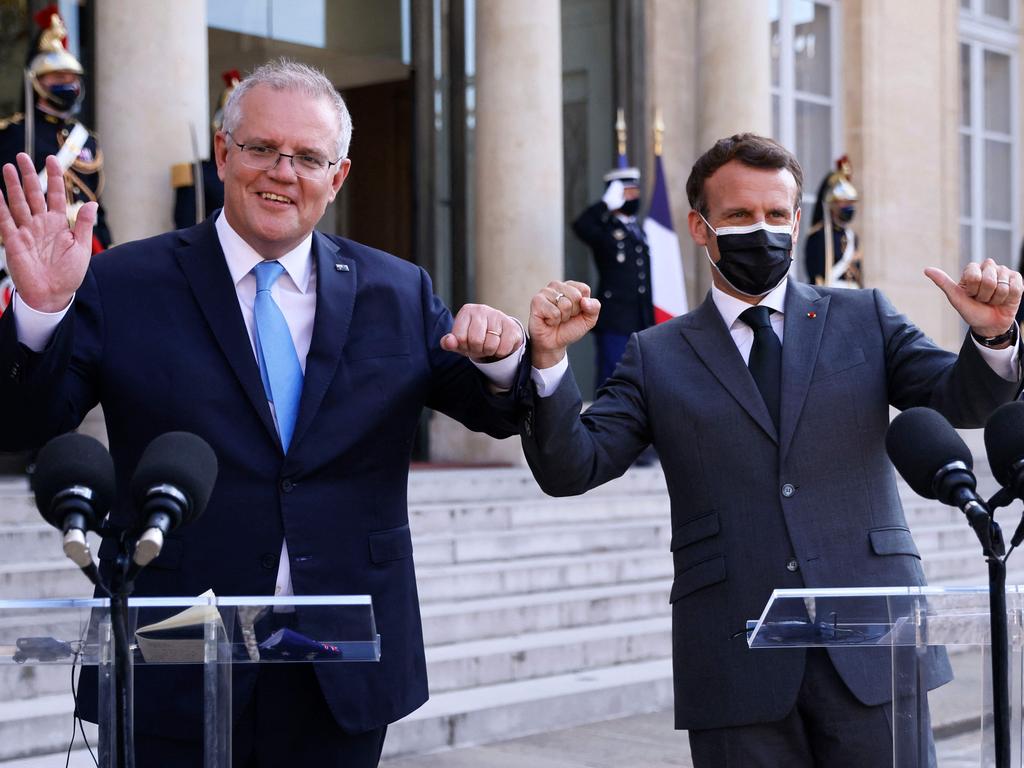
The green revolt has yet to reach peak chaos. For now, the more temperate forces of global capital are directing the fourth industrial revolution with a view to long-term investment, slow growth, sustainable debt and multilateral governance. Larry Fink is a major player of the reformist camp. He is chief executive of BlackRock Inc, the largest asset manager in the world. Along with Vanguard, BlackRock is a leading investor in Australia’s four major banks. In making the case for more ambitious environmental goals, Treasurer Josh Frydenberg noted BlackRock and Vanguard’s adoption of the net zero by 2050 target.
Fink set out his plans for the global transition to net zero in The New York Times. It will require “unprecedented” investment in technology and infrastructure, with funding for poor countries at six times the current rate. Fink estimates the cost of foreign development aid for low-carbon projects will be in the region of one trillion dollars. He argues that governments cannot afford the increased expenditure and emerging markets have failed to attract sufficient private capital for it. His solution is public finance for private markets. Western taxpayers will foot most of the bill. So how much will Fink’s plan cost us? About $100bn a year for each donor country. He concedes the figure “seems daunting” but argues it will be much higher if OECD nations plus China fail to commit more public finance to developing low-carbon projects in the developing world.
Last week, the Coalition released its climate action plan, which includes $126bn to develop new technologies. The funding is aimed at helping fulfil its promise to fund emissions reduction through technology not taxes. There is discussion about vehicles, fuel standards and hydrogen. It is a plan for gradual reform. The end goal of net zero by 2050 will be achieved incrementally.
The Coalition has decided on a policy of persuasion to bring about green reform. It will not mandate net zero by punitive legislation and rejects Labor’s insistence on codifying the target in law. But, like Labor, it has not released economic modelling for the net-zero goal. Its promise of technology not taxes will mean little if inflation and interest rates rise. A dramatic fall in living standards is rarely the prelude to stories of electoral victory.
The Australian Bureau of Statistics’ living cost indexes illustrate increases in critical areas. In the June quarter, transport was the main contributor to LCI rises for four out of five household types. Automotive fuel prices drove up transport costs. The ABS attributed a rise in housing costs to an increase in electricity prices, noting the West Australian government was unwinding its $600 credit. In the food and non-alcoholic beverage category, prices rose due to increased costs of fruit and vegetables associated with a shortage of pickers and heavy rainfall in Queensland.
In the 12 months to the September 2021 quarter, there were significant price rises in automotive fuel (up 7.1 per cent) and new home purchases by owner-occupiers (up 3.3 per cent). Transport prices rose 10.4 per cent over the year, mainly due to fuel price increases. But that was on the back of record low retail petrol prices in 2020-21, as reported by the Australian Competition & Consumer Commission.
At an investment conference in Riyadh, it was predicted crude oil would rise above forecasted prices. Reuters reported Goldman Sachs chief executive David Solomon said the price of Brent crude would rise above $90 while Fink predicted it could hit $100 a barrel.
Australia cannot survive economic reform that drives up electricity and fuel prices while we are trying to defuse a trillion-dollar debt bomb left by the Covid pandemic. We ended the last financial year with a $134.2bn deficit. The budget projected a net debt of $729bn. The government has forecast budget deficits every year until 2060. It will narrow during the next decade, but blow out as more Australians reach old age. Health and welfare spending will rise to accommodate our ageing population.
Political parties that promote big-spending green campaigns impress champagne socialists and opportunistic investors, but Australians with lower wages and less disposable income are more exposed. If rates rise, the squeeze on household incomes will be felt acutely. Fink is more direct than most about the potential impact of one-eyed thinking about emissions reductions. At a Deutsche Bank virtual event he said: “If our solution is entirely just to get a green world, we’re going to have much higher inflation, because we do not have the technology to do all this yet.” The question he posed next might upset purists who believe the virtues of going green can and should remain untainted by economic reality: “Are we going to be willing to accept more inflation if inflation is to accelerate our green footprint?”
Taxpayers will fund the green revolution. Political parties that want taxpayers to invest in billion-dollar green ventures should present a business case to the electorate and disclose how multinational firms and multilateral agencies will be held accountable to voters. The green new deal requires a democratic contract to seal its legitimacy. It is time that citizens saw the fine print.







No sooner had the Prime Minister pledged to net-zero emissions by 2050 than the left cried out for more. Labor wants the target legislated. The Greens dream of subzero by 2035 and all energy needs met by renewable resources. Some activists want to cancel in 10 years the energy industry that gave birth to the modern world over centuries. Demanding Australia quit coal before we have the means to renew our economy, pay down debt and defend our geopolitical interests is destructive.